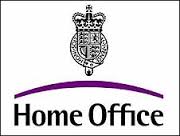LME Move clinches deal to bring innovative Right To Rent App to landlords and letting agents nationwide
 The 1st of February 2016 marks a critical day for residential landlords throughout England. It is from this date onwards that all landlords will be legally responsible for checking that all new tenancies issued for their properties are only made to persons legally entitled to reside within England.
The 1st of February 2016 marks a critical day for residential landlords throughout England. It is from this date onwards that all landlords will be legally responsible for checking that all new tenancies issued for their properties are only made to persons legally entitled to reside within England.
Failure to do so may result in offending landlords being hit by a £3,000 fine for every instance where an illegal tenant is found in-situ.
Legally required on all new tenancies across England as of 1st February 2016
The roll-out across England follows on from the pilot scheme trialled in the West Midlands during 2015. At the time the scheme brought controversial issues to light including worrying findings published in a report by the Joint Council for the Welfare of Immigrants, which found that landlords in the West Midlands were refusing lawful tenants as they became increasingly cautious about renting properties out to any tenant with identity documents with which they were not familiar.
As supporters of initiatives such as Leeds Empties and being one of the leading, ethically minded independent nationwide property services suppliers in the UK, www.lmemove.com was concerned to read about this outcome. So much so that when LME Move started its own business planning for suitable Right To Rent solutions in late 2015 it made a concerted effort to ensure any such solution would not only make the checks quick and easy to do but also help reduce the chances of such adverse discriminating side-effects.
Cost effective, Home Office compliant, quick to use and multi-platform
Thankfully the search has borne fruit and LME Move has now sealed a deal with a cutting edge App developer to bring its quick and easy to use Right To Rent App to LME Move’s nationwide landlord and letting agent client base across England.
Speaking last week, LME Move’s Compliance Executive Sue Clear said, ‘We are thrilled to be working in collaboration with our App partners. We spent the best part of Autumn 2015 in talks with several providers to review potential Right To Rent solutions to bring to our clients.
What was important for us was:
- cost effectiveness
- accessibility via smartphone, tablet and PC
- ease of use
- ability to quickly scan and store time/date stamped evidence of document checks carried out to ensure our clients remain Home Office compliant.
However, just as importantly the solution also had to possess the ability to quickly guide and support our clients – through a fast click, by click, process – to drill down the exact documents they should expect their specific tenants to be supplying to them out of the hundreds of various documents possible.’
 Simple and fair – the Right To Rent App that’s child’s play
Simple and fair – the Right To Rent App that’s child’s play
The Right To Rent App is exactly that.
As Sue finished explaining, ‘The landlord or agent simply answers the step by step questions via the App about their specific tenants’ circumstances and the App guides the landlord or agent through the entire process and documentation in a matter of minutes.
It is our hope that not only will this help educate our landlord and agent clients as to the variety of documents but also help them avoid consciously or unconsciously erring on the side of caution and only issuing tenancies to tenants presenting more familiar, everyday documents.’
Prepare ahead of 1st February 2016 and find out more
Interested landlords and agents searching for a Right To Rent solution can read more about the service on the LM Experts website here. They can also contact LME Move’s International Marketing Director directly for full product information, demonstration and pricing exclusive to LME Move via: mark@lmemove.com
Further information about LME Move’s full range of other nationwide property services for landlords, letting agents and property investors – including gas safety certificates, boiler services, electrical safety certificates, legionella risk assessments, smoke & CO alarms, RICs surveys, out of hours emergency property services and building, plumbing and electrical maintenance services can also be obtained from: mark@lmemove.com or by visiting www.lmemove.com



 A new law requiring that all new and converted homes in Wales be fitted with sprinklers has come into force, the first of its kind anywhere in the world.
A new law requiring that all new and converted homes in Wales be fitted with sprinklers has come into force, the first of its kind anywhere in the world.


 The Bank’s governor, Mark Carney, said he was concerned about high levels of lending to landlords and that the Bank would take action. “There are a number of things happening … we are watching it closely and we will take action,” he told the FT. Mr Carney said the problem was that investors might sell their properties at the same time if house prices fell.
The Bank’s governor, Mark Carney, said he was concerned about high levels of lending to landlords and that the Bank would take action. “There are a number of things happening … we are watching it closely and we will take action,” he told the FT. Mr Carney said the problem was that investors might sell their properties at the same time if house prices fell.
 Landlords sighed with relief at the Conservative victory in the
Landlords sighed with relief at the Conservative victory in the 
